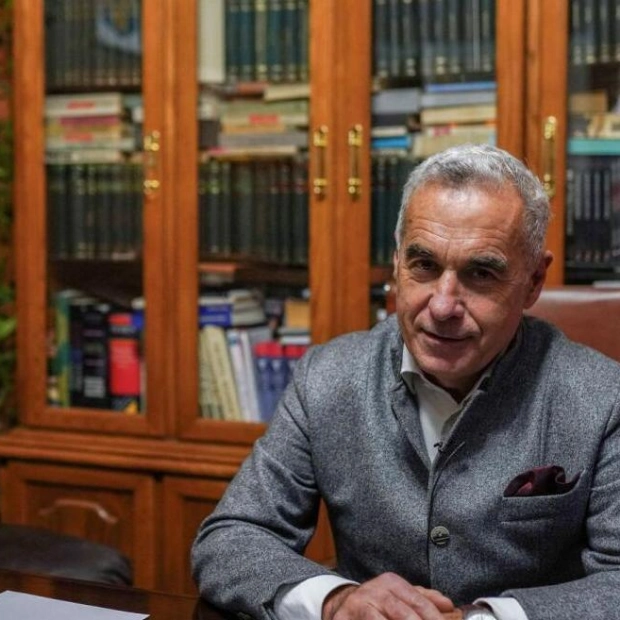Traders at the New York Stock Exchange. — AFP
Wall Street is nursing a few wounds after enduring its worst week in 10, dampening the post-election euphoria. The reality of interest rates and earnings is creeping back in, along with uncertainty about what the new administration will actually implement in January. Stocks took a hit on Friday following a week of troubling inflation data, robust retail updates, and Federal Reserve Chair Jerome Powell's ambiguous stance on future easing measures. There was also anxiety ahead of chip giant Nvidia's latest earnings report on Wednesday. As the world's largest company by market value and a leader in artificial intelligence, Nvidia faces another test of its nearly 800 percent stock surge over the past year. The $3.5 trillion company is projected to report net income of $18.4 billion as revenue surged over 80 percent to $33 billion, according to LSEG data. However, Nvidia's massive earnings beats over the past year are likely to become more modest. Amidst reasonable concerns about the possibility of a global trade war, Nvidia's shares fell 2 percent early on Monday after weekend reports revealed issues with its new Blackwell AI chips, which have already faced delays, and accompanying servers that overheat. Nevertheless, stock index futures showed a more optimistic outlook ahead of Monday's opening, attempting to recover some of last week's losses, which nearly halved the S&P500's post-election rally. The broader earnings season has outperformed expectations, with aggregate annual profit growth nearing 9 percent, compared to the 5.3 percent forecast at the start of October. Next year's growth estimates are being revised downward, with full-year S&P500 profit growth forecasts dropping about one percentage point to 14 percent over the past two weeks. Beyond stocks, the volatile Treasury market stabilized early on Monday, with 10-year yields staying below 4.5 percent. Futures pricing indicates about a 60 percent chance of another Fed rate cut next month, with 75 basis points of cuts expected by the end of next year. Despite controversial cabinet picks so far, President-elect Donald Trump has yet to propose names for the top economic positions at the Treasury or Commerce departments or the new Trade Representative. Trump added former Fed Governor Kevin Warsh and billionaire Marc Rowan to the list of candidates for Treasury secretary, according to the New York Times and Wall Street Journal. Warsh, a former investment banker, served on the Fed Board from 2006 to 2011 and was viewed as both a fiscal hawk and a proponent of higher savings rates. Rowan co-founded investment manager Apollo Global Management and became its CEO in 2021. The reports cast doubt on the perceived two-horse race between Howard Lutnick, CEO of Cantor Fitzgerald, and hedge fund manager Scott Bessent. Geopolitical developments also returned to the forefront as G20 leaders convened in Brazil, focusing on potential breakthroughs in climate finance rather than more contentious issues of trade and tariffs. Tensions in Ukraine escalated after Russia's bombardment of the country's energy infrastructure, followed by US President Joe Biden's decision to allow Ukraine to use its weapons to strike into Russia.
Source link: https://www.khaleejtimes.com






